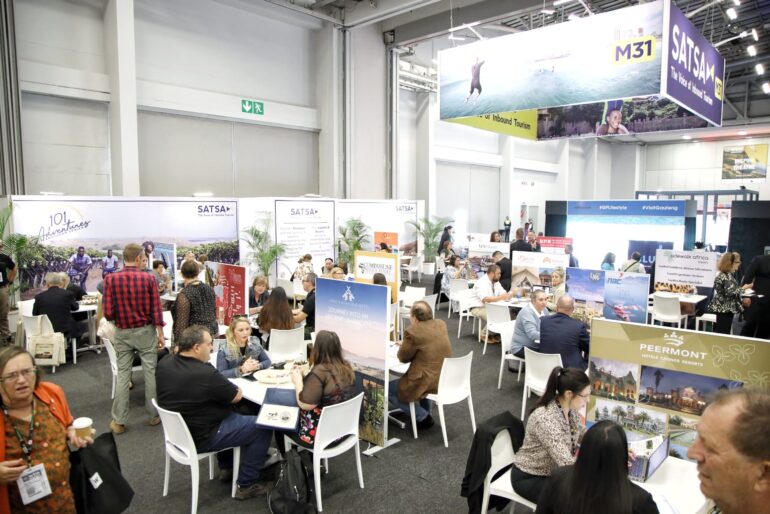A key question asked at WTM Africa: How can small travel and tourism businesses become big businesses? Panel experts tackling the issue included: Septi Bukula, Founder and Director of Seeza Tourism Growth Network; Tshepo Matlou, Business Coach, Sobona; and Velma Corcoran, Regional Lead, Middle East Africa at Airbnb. Moderator Mandisa Magwaxaza, Founder and Owner of Molo Mhambi Relations and Womxn Xplore led the discussion.
Bukula explained that a small business, as per formal government guidelines, is defined by size of revenue, number of people employed, and gross assets. He did note that there are companies that do not employ a lot of people but may be high revenue, and whilst government does place emphasis on employment, this is not overlooked.
“In terms of funding opportunities, all these factors are taken into account. A bank would prioritise asset base and revenue, whilst venture capitalists are looking at future growth – a unicorn in the making,” Bukula said.
Matlou added, “A healthy definition of big business means how we operate in a community, how we add value in terms of the supply chain, and the sustainability of the business. We need to build value within our communities. Enterprise development in townships is successful because they add value to others, for example, a guest house can benefit tours and restaurants.”
Building on from the value chain theory, Corcoran raised the point that of the 11 million jobs by 2030 – as laid out by the National Development Plan – it is estimated that nine million of those jobs are expected from SMMEs, and within that, two million will be from the informal sector which is often overlooked.
“Government tries to formalise rather than enable,” says Corcoran. Her second key point highlighted private/public partnerships, such as that of Airbnb in the Waterberg. Here Airbnb have worked with the local municipality to develop potential tourism experiences through the Airbnb Entrepreneurship Academy. Other partners were brought on board in order to support and enable entrepreneurs within the region. “Our digital campaign shines a spotlight on both the area and the hosts to increase demand. We would love to roll out this model in other areas. What made it work was the willingness of parties to come together for the betterment of the area, so solutions were found.”
Magwaxaza put the challenge forward of how we move away from traditional funding, and asked how government can be more creative and efficient in the support of small businesses. Bukula acknowledged that information is scattered and inefficient and that people do not take advantage of available support because they don’t know how to find it. He raised the point that banks also have programmes and are very supportive of SMMEs.
Matlou encouraged individual support of potential through access, skills development and mentorship. “We need to have affordable technologies online and private/public initiatives to provide other tools beyond training. We need to give people the skills to run a business and provide the marketplace,” he said.
All agreed that nothing will work without the drive of the entrepreneur as the key ingredient to develop businesses within tourism.

